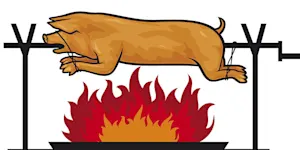What Makes This Word Tick
"Congeal" is a word that paints quite the mental picture. It brings to mind the act of something turning from a liquid to a solid or semi-solid state. Think of jelly setting or perhaps cooled gravy that’s turned a bit too rigid. It's a biology and chemistry staple but has a poetic side when used creatively, too.
If Congeal Were a Person…
Picture someone who’s utterly steadfast and unyielding. They’re the person who, once set in their ways, finds little motivation to change. They might be a bit hard to warm up to at first, staying somewhat reserved and collected until viewed in the right light or temperature, so to speak!
How This Word Has Changed Over Time
Congeal has maintained its essence over the centuries, originating from the Latin word "congelare" meaning "to freeze together." While initially more about the literal process in alchemy and early science, its use has trended more metaphorical in literary contexts, capturing anything from closing ranks to binding emotions or ideas.
Old Sayings and Proverbs That Use Congeal
While you may not find ancient proverbs warning about congealment, literary expressions have subtly harnessed it to indicate the slowing down of actions or emotions. It’s often been used to speak of thoughts that solidify into convictions.
Surprising Facts About Congeal
Did you know that congealment plays a critical role in cooking and food science? Chefs exploit it when creating those delicate trembles of panna cotta or the rich texture of a cooled sauce. Understanding congealment is key to both culinary art and science!
Out and About With This Word
Out in the wild, "congeal" often finds its home in kitchens, laboratories, and even in wintry weather reports. Fascinatingly, its less tangible usage appears in the arts, where concepts or themes "congeal" into a cohesive narrative or a single artistic statement.
Pop Culture Moments Where Congeal Was Used
While not necessarily hogging the limelight, "congeal" makes appearances in science fiction and detective genres. See it show up when mysterious substances take a more ominous form – or when clues finally come together to solve the mystery!
The Word in Literature
Congeal takes on a dramatic role in literature, perfectly suited to gloomy Gothic novels or as part of the verbose descriptions in classic horror. Its ability to evoke a sense of chill or stasis lends an atmospheric touch to narratives.
Moments in History with Congeal
During the Middle Ages, alchemists dedicated themselves to the art and science of transformation, calling on the concept of congeal to describe turning base substances into nobler forms. Fast forward, it’s been figuratively used to describe social and political movements that solidified over time.
This Word Around the World
Around the globe, you’ll find various words for "congeal" that reflect cultural nuances. For example, in Japanese, it’s "katamaru," also implying a sense of hardening or solidifying. While globally understood in scientific circles, casual conversation might see it replaced with simpler "set" or "harden" equivalents.
Where Does It Come From?
"Congeal" travels from the 14th century, where its roots lie in the Latin "congelare," coming through Old French as "congeler." Not just a cold transition, it implies a transformation to a steady state, borrowing from the Latin prefix "con-" meaning "together" and "gelare" meaning "freeze."
How People Misuse This Word
There’s a subtle finesse to using "congeal" correctly. It’s sometimes mistaken for "coagulate," especially in medical or culinary contexts, but congeal is far broader – not necessarily involving blood or proteins.
Words It’s Often Confused With
Coagulate: Typically used for blood or proteins thickening.
Solidify: A general term for the hardening process.
Freeze: Implies turning to ice, specifically with cold temperatures.
Additional Synonyms and Antonyms
Synonyms for "congeal" include thicken, gel, and set. Its antonyms would be melt, dissolve, or liquefy, describing the process of something becoming less solid.
Want to Try It Out in a Sentence?
After the soup cooled, a thin layer of fat began to congeal on the surface, giving away its hearty ingredients.
















